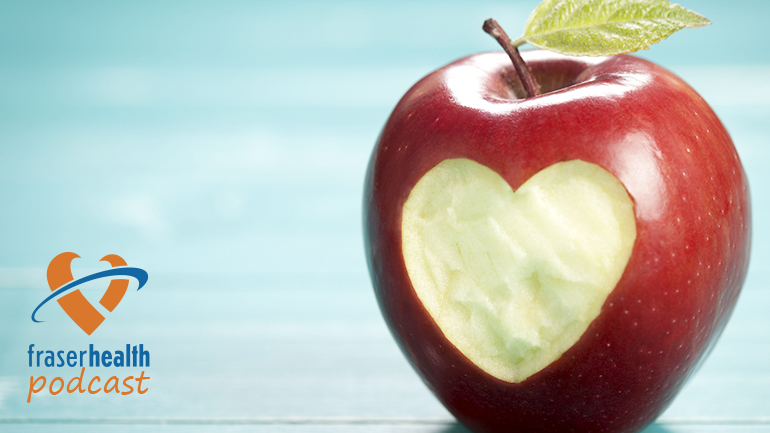
With heart disease, knowing your risk as well as the signs and symptoms can save your life. Learning if you are at risk and how you can lower your risk is so important for your heart health.
I’m a general internist at Surrey Memorial Hospital, which means I’m a doctor who treats a little bit of everything: I look after heart disease, high blood pressure, diabetes, kidney disease and other conditions and I see patients in hospital and then follow up with them in my office.
With heart disease, knowing your risk as well as the signs and symptoms can save your life. Learning if you are at risk and how you can lower your risk is so important for your heart health.
In our latest podcast, “The top myths of heart disease – and how to prevent it,” Deljit Bains, Leader of Fraser Health’s South Asian Health Institute, and I discuss the top three misconceptions about heart disease, which heart disease warning signs to watch for in men and women, and risks in the South Asian community. Have a listen to help keep your heart healthy or read on for more advice.
The myths of heart disease
One of the myths I hear often from my patients is, “I’m too young, I don’t have to worry about heart disease." This is in fact not true -- we have patients who have had heart attacks in their 40s and 50s if they have had poor eating habits or other lifestyle factors. Forty years is enough time to have done significant damage to your heart, so age alone does not keep you safe from the risks.
Another myth I hear from patients, is, “I’m on the cholesterol pill so I am protected from heart disease, or I can eat whatever I want.” This isn’t true. We always say you still need to watch your diet and exercise. The medication is meant to help, not to replace lifestyle changes.
Sometimes a patient who has a heart attack and has bypass surgery or stents put in will say, “I’ve had my heart fixed so I don’t have to worry anymore.” Well, yes, you may have had your heart fixed, but the damage has already been done. The heart is now weakened and can become damaged again if you don’t take care of your diet and exercise. In fact, you are probably at greater risk in future because of your history.
Who is at risk for heart disease?
We divide risk factors into things you have control over such as smoking, drinking alcohol, high blood pressure, high cholesterol, diabetes, and lack of exercise and obesity, and things you don’t have control over such as age and gender.
The signs of heart disease in women and men can be different. In men chest pain or tightness or pressure is often described, sometimes numbness or tingling going down an arm. I hear about men getting shortness of breath while walking, or swelling in the legs. In a healthy individual, it can be really easy to brush off these symptoms. Women often have different signs and symptoms. They are not the classic signs that men present with such as chest pains. Women often come in and complain of heart burn, they will come in with nausea or vomiting, sweating a lot, or neck or jaw pain.
How can you prevent heart disease?
There are key lifestyle changes that can help reduce your risk of heart disease. One is cutting out salt. It has no nutritional benefits, so we tell most of our clients to really cut it out, and to cut sugar out too, and that can reduce your risk of heart disease.
We emphasize you should eat whole grains such as whole wheat basmati rice and breads, fresh fruit and vegetables, lean meats and fish, and consider red meats a luxury you eat a just few times a month. Also, stay away too many fats and from processed foods high in fat and sugar and salt.
And in terms of exercise it’s recommended we all get at least 30 minutes of exercise a day, five days a week – that is the absolute minimum. It needs to be hard cardiovascular activity where your heart needs to race, so not walking, but power walking or running; not weights, but climbing up and down the stairs. You don’t need a gym membership, you can just go outside or do stairs in your house.
To learn more about how to keep your heart healthy, listen to the podcast. You can also listen to the Punjabi version of the podcast. Visit fraserhealth.ca for more information on heart health.
